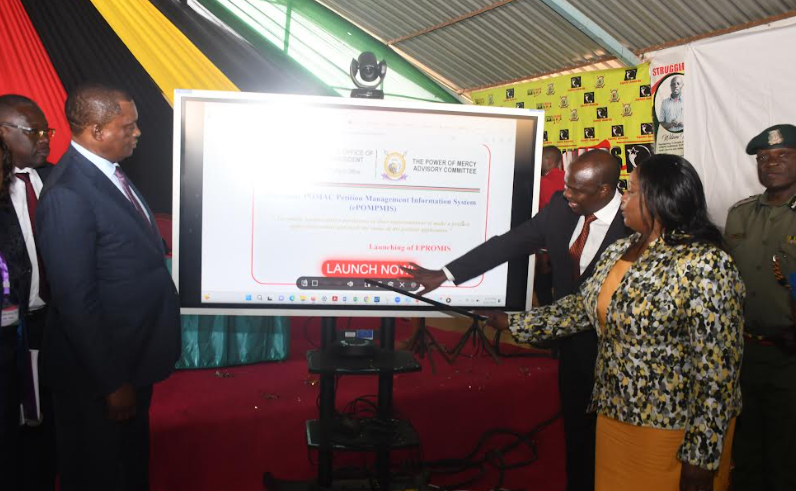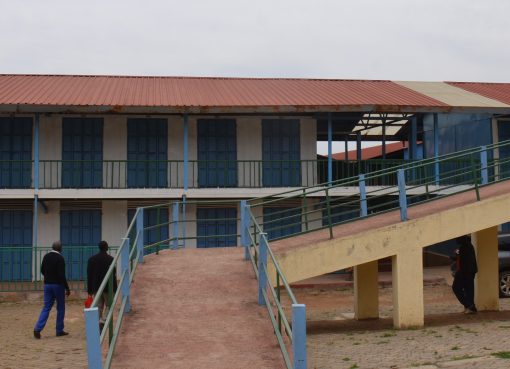It is a new dawn for prisoners across the country as the Electronic Power of Mercy Petitions Management Information System (ePOMPMIS) was launched at the Kamiti Maximum Security Prison on Wednesday.
Chief of Staff and Head of the Public Service Felix Koskei, who was the chief guest at the event, said the initiative was in line with the Kenya Kwanza government’s promise of making public services more accessible, citizen-friendly, open, and transparent.
He said the launch of ePOMPMIS demonstrates the Head of State’s commitment to implement one of the key levers of the Bottom-Up Economic Transformation Plan (BETA), the Digital Superhighway and Creative Economy, whose aim is to enhance government service delivery through digitization and automation.
“This end-to-end automation of the petition process will provide all inmates access to an electronic platform through which they can appeal to the President for clemency and pardon,” Koskei said.
He added that the Power of Mercy, through clemency and pardon, is testimony to the commitment of the people of Kenya to foster reform and rehabilitation of offenders so that they may reclaim their position in society.
“This is a commendable way of giving dignity to every person as envisioned in the Constitution on the “Bill of Rights” whose aim is to preserve the dignity of individuals and communities, promote social justice, and realise the potential of all human beings,” he said.
The Head of Public Service further noted that the Power of Mercy offers a new ray of hope and a beacon of light for those who would choose to reconsider their ways and work hard for a second chance in life.
“I encourage all these officers to remain true to the principles and values of public service, always remembering that they are serving a highly informed, knowledgeable, and demanding citizenry, always ready to exercise their democratic rights,” he said.
Lydia Muriuki, CEO of the Power of Mercy Advisory Committee (POMAC), said the transition of the system from a manual to an electronic would save the government Sh59 million annually, and at the same time, it would cut time spent as officers had to travel to different prisons in the country to conduct interviews, which would take about 6 to 12 months, which has now been reduced to only one week.
“With all the documents needed, our clients can take a maximum of one week to complete their online applications… Their family members can also do the applications for them through the E-Citizen portal at home,” Muriuki said.
She cited that the success of the electronic system is a collaborative effort involving various state agencies within the Criminal Justice System, which include the Prison Services, Director of Criminal Investigations, Judiciary and Probation, and aftercare.
“This will bring transparency, accountability, and enhanced access to service delivery to an important aspect of the criminal justice system: rehabilitation through restorative justice,” said Muriuki.
Attorney General Justin Muturi, who is also the chair of POMAC, stated that the digitization process would enable petitioners to track their cases online.
“The Power of Mercy has also been boarded on our e-citizen platform, where petitioners will track their cases with transparency and accountability, and with this, it is now not possible for the Power of Mercy to be capricious and whimsical,” he noted.
On his part, Commissioner General of Prison Wycliffe Ogallo said since the promulgation of the new Constitution, presidents have granted mercy to 19,125 reformed criminal offenders, comprised of 236 long-term offenders, 3,409 commutations from death row to life sentences, and another 15,480 petty offenders.
“I note that research by POMAC on recidivism indicated that the majority of pardonees have been integrated into the community and are engaged in nation-building as law-abiding Kenyans,” he said.
By Grace Naishoo





